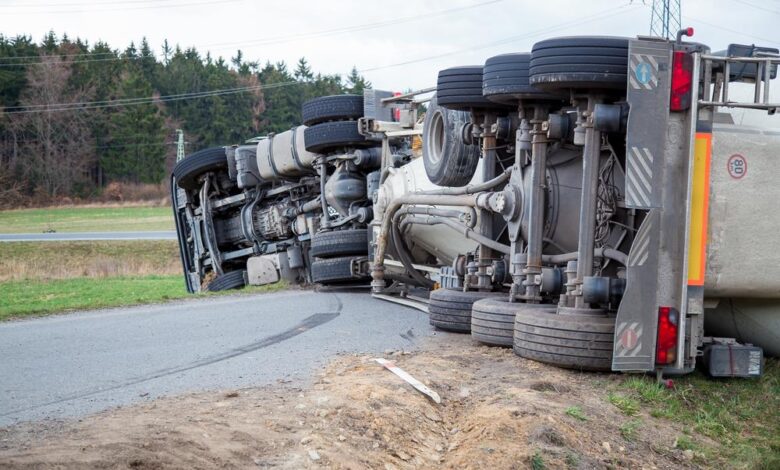Understanding Liability in Truck Accident Cases – A Legal Guide

In a typical car accident, it is relatively easy to hold the driver of a vehicle accountable for their negligence. However, determining liability in truck accidents is far more complicated due to the number of potentially liable parties involved.
Identifying a liable party requires comprehensive evidence and expert testimony. From physical evidence at the crash scene to logbook records and witness testimony, a lawyer can collect and analyze comprehensive information that may help establish which parties are liable for your accident.
Negligence
Negligence is the most common cause of truck accidents. It involves a party breaching a legal duty of care, which leads to an accident and damages. This can be proven through physical evidence such as photos of the crash site, eyewitness testimonies, and police reports, as well as through documents such as maintenance records, truck driver safety history, data from a truck’s onboard electronic logging device, and medical files.
Trucking companies typically employ truck drivers, and Denton law allows these employers to be held liable for their employees’ negligence when it occurs within the scope of their employment. Other liable parties might include the truck manufacturer, cargo loaders and shippers, or government entities responsible for maintaining roads. Under state law, each party might also be liable for faulty parts contributing to the accident.
Design Defects
Sometimes, parts and systems fail, especially in heavily used vehicles like trucks. When these parts or systems fail, accidents that are catastrophic in scale can happen. In these situations, victims may be able to hold one or more parties responsible.
Proving that a liable party failed in their duty is the first step to recovering compensation for your losses. This requires demonstrating that their negligent action or inaction directly caused the accident and your injuries.
Liability may extend to the trucking company that owned the vehicle and any entity that leased it. In addition, manufacturers could be held liable for any defects that arise during production—proving these claims requires expert testimony. A successful legal claim can help you recover economic and non-economic damages.
Maintenance Defects
Trucking companies must maintain their fleets in safe working order. If they fail, it may be possible to file a claim for damages.
However, it is essential to note that vicarious liability may sometimes apply. Vicarious liability is a legal theory that holds an employer responsible for the actions of their employees while on duty.
In some cases, it may be possible to hold a third-party maintenance company or manufacturer of a defective truck part liable for a mechanical failure that led to the accident. Moreover, truck accident Denton attorneys will work with mechanical experts to identify liable parties. If more than one party is found liable, their percentage of fault will be apportioned accordingly. This will reduce the total amount of the award.
Defective Parts
There are times when a truck accident involves defective or manufactured components. For instance, if a truck accident lawyer finds a crash caused by brakes that didn’t work as they should have, the design and manufacturing companies may be liable for victims’ losses.
In addition, trucking companies must regularly inspect their trucks and log the results of these inspections. If a trucking company neglects these duties and a dangerous defect develops, it could also be liable for truck accidents that occur as a result.
In many cases, determining liability in a truck accident case can be much more complex than the process involved in evaluating car accidents. An experienced attorney can help victims identify all potentially liable parties and pursue maximum compensation.
Faulty Equipment
While human error plays a significant role in most truck accidents, some collisions may result from faulty equipment. This could include tires, brakes, and other crucial parts for safe truck operation. When a truck accident results from such a defective part, the manufacturer and mechanics who installed the component may be held liable.
To pursue compensation, you must demonstrate that the defendant met the four legal criteria for negligence. These include damages, causation, duty of care, and duty violation.
Trucking companies that neglect or pressure drivers to work excessive hours, skip inspections, and fail to order repairs can be held liable for resulting accidents. When a defective part is involved, the manufacturer of that part can be held liable under product liability laws.



